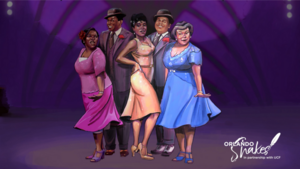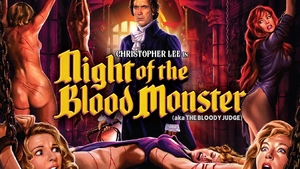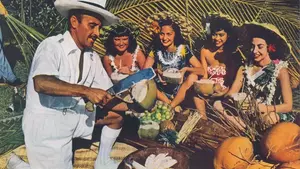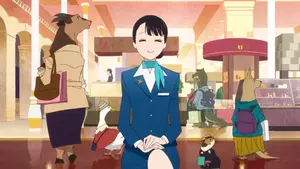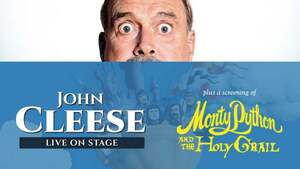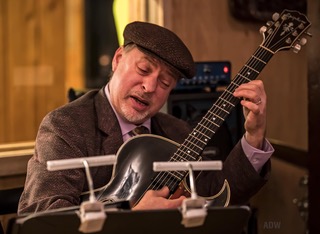
An interview with jazz guitarist
Greg Chako
by Stacey Zering
Jazz guitarist Greg Chako is a man of two worlds. Based in Cincinnati, Ohio, he is more recognized in Japan. In fact, his concert album, Tokyo Live!, was recorded there. Chako recently opened up about his international connections, both professional and personal.
• •
Stacy Zering: I don’t know too many jazz artists who record live albums in Japan. I find it fascinating that you did. Do you have a personal connection with Japan?
Greg Chako: Yes. In 2000, when I lived in Singapore, I married a Japanese national. It was because of her that I was able to move to and live in Japan easily. Unfortunately, shortly after our relocation to Japan in 2003, she was diagnosed with metastatic breast cancer. Our one-year-plus fight with cancer took up “all the air in the room” so to speak, and I was off the music scene for a couple years. But a year or so after she succumbed to the disease, I released a tribute album dedicated to her, called Where We Find Ourselves. It was a double album which included songs written during and about our struggle with cancer. Even the title relates to my personal situation in Japan, being widowed there in that foreign country was actually “where I found myself.” Though my late wife was why I found myself in Japan, I have always been attracted to the cultures of the Far East, and Japan, with its love of American jazz, was certainly no exception.
Do you have a following in Tokyo?
I’d like to think so, but I doubt that I have a significant “drawing power.” It’s hard to say, as I have not been a part of that local scene since 2008. But for sure, I am well-remembered by certain players and fans, and releasing Tokyo Live! might help them recall my contributions to that vibrant scene.
There are stateside musicians who are more well-known in foreign countries than in the U.S. Is that the case with you?
I very often believe that is the case, and especially so since I moved back to my hometown of Cincinnati, Ohio. In 1985 or so while I was living here, I booked a weekly jazz program of music at a local bar called Doc’s Place. Besides playing there myself, I booked a wide variety of both local and internationally-known jazz artists. I booked 4-nights a week of live jazz! When I returned to Cincinnati in 2017 to be closer to an ailing family member (who’s no longer with us), it seemed to me that nobody knew who I was, and unbelievably to me, some of the local musicians I had booked at Doc’s Place 30 years ago did not even remember that it was I who had booked them. Cincinnati seems to me very parochial in nature. Mark Twain is rumored to have once said, “When the world comes to an end, I hope I’m in Cincinnati!” That’s because everything here happens ten years late!
On one trip back to Asia, strangers walked up to me asked, “Aren’t you Greg Chako, the jazz guitarist?” But in my own hometown, well-known power brokers on the local jazz scene will walk right past me at an event, without even acknowledging my presence. This has actually happened. In January this year, I returned to Asia for a family vacation, but while there I performed with a quintet in Singapore for two nights in a row. More than 100 people came to hear me. In five years living in my own hometown of Cincinnati, I have not ever played two nights in a row at the same place, I never played in a club with a five-member group, and I never had more than 100 people to come and see me play, never mind each audience member paying $20 to do so.
There are more places to hear live jazz in the tiny island state of Singapore than there are in the medium-sized American city of Cincinnati, a city with a professional football team, baseball team, and a symphony orchestra! And in Japan, you can hear jazz being played everywhere all the time. The muzak you might hear in an office building or store in Japan is jazz.
But having said all that, it should also be mentioned that local musicians everywhere have to deal with some form of reduced notoriety at their own local level. That is, even well-known players living in the jazz capitol of the word, NYC, tour out-of-town in the summer. The best way to gain exposure is by traveling often; however, if you’re gone for too long, they’ll forget who you are.
How does it feel to perform there as compared to America?
It feels great to perform anywhere when you’re getting paid fairly, treated with respect, and also when the guys you’re playing with are as good as or better than you. That was certainly the case with Tokyo Live!
Many people I’ve played Tokyo Live! for have admired how it was recorded. It feels like I was sitting in the crowd. Did you choose that venue for its acoustics?
Not at all. I guess you can say that we were just lucky (laughs).
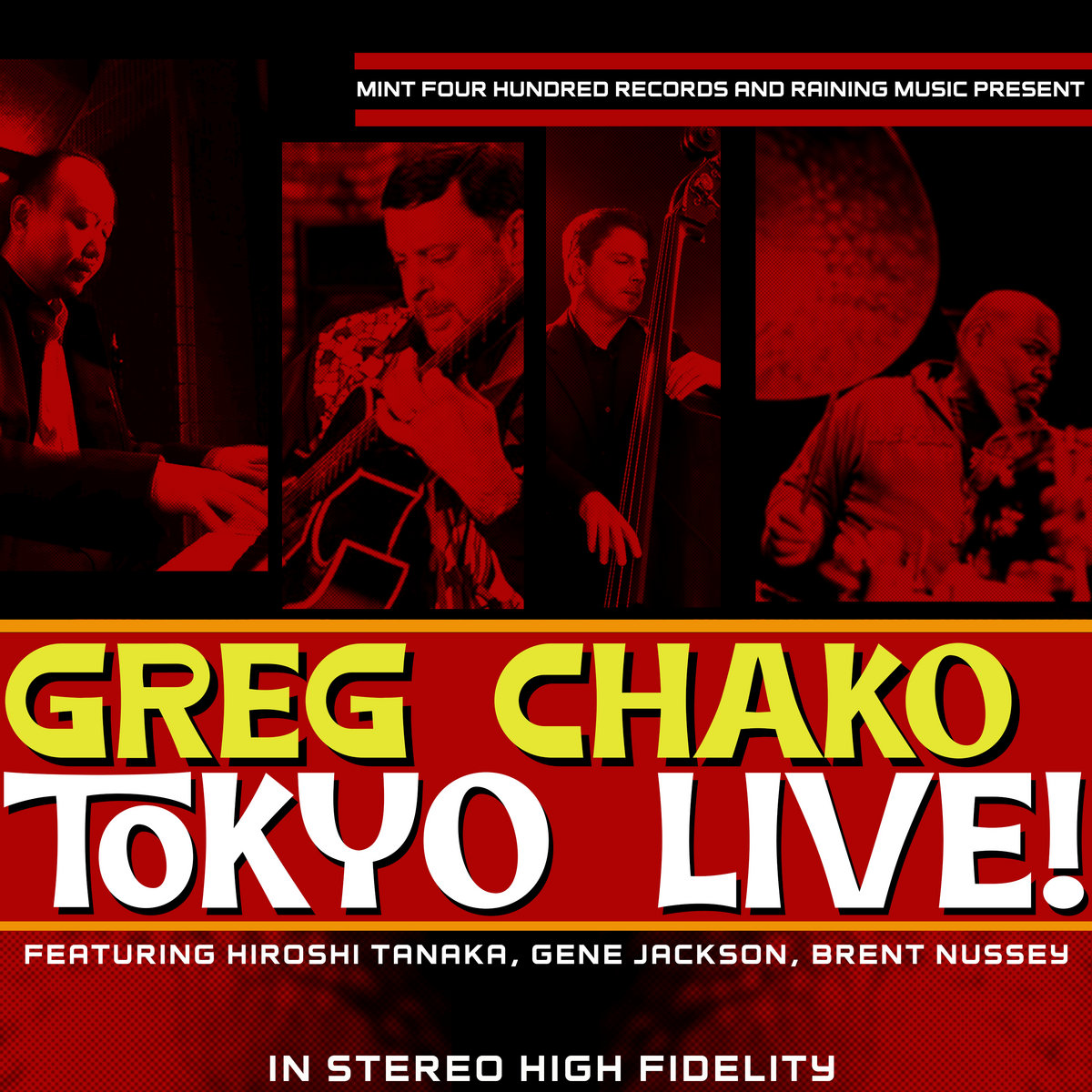
Tell me about the musicians who play with you on the record. How did you meet them?
Before I relocate to a place, and sometimes even before I visit a place, I try to find out who the good players are and where I can go to hear jazz. It’s simply good networking. I go on the internet, I send emails, I ask for advice, and I make phone calls. I am in the habit of compiling a list of the best players I can find on each instrument so that if I need them, I am prepared.
While living in Japan, I was given a regular Friday night duet gig with piano at The Imperial Hotel, right across from the Imperial Palace. It’s the most famous hotel in Japan. The pianist from Tokyo Live!, Hiroshi Tanaka, I met from hiring him to accompany me on that gig. Hiroshi-san also appeared on an album I made while living in Japan called Two’s Company, Three’s a Crowd, a CD of duet performances. He is unusual, because he played with a Spanish Flamenco group (which normally does not have a piano player) and he especially likes working with guitarists in general, so he was a natural choice and we became friends as well as musical partners. Because of his native-speaking Japanese abilities, he often was the one handling booking details whenever the group toured.
Brent Nussey, the bassist, was one of the first musicians I met in Japan, because when I begin to compile a list of players in an area, I always start with the bassists. In my world, every musical group I make begins with finding the right bassist, plus, Brent is Canadian, so it was natural that I would find him early on in my search, because we shared the commonality of the English language — a connection I didn’t necessarily have with many of the Japanese players due to my ignorance of the language.
The drummer Gene Jackson was recommended to me by another American drummer I knew at the time. My regular drummer on a steady gig was going to be absent for a few weeks, and I had to find his replacement. Gene was that replacement, and from the very first downbeat of that first night playing together, I knew that Gene was a special talent. I asked him if he was interested in playing more with me, and I gave him a couple of my CDs. He listened to them and liked what he heard, and we’ve loved playing together ever since then. Everybody loves playing with Gene Jackson.
I’m extremely proud of the group on Tokyo Live! and I know that the feeling I have for them and of the unit as a whole is mutual and will never fade.
What’s more satisfying for you: teaching or playing music?
The most satisfying thing in the world for me is to be performing, composing, recording, and teaching regularly, provided I am getting paid fairly and can make ends meet, so to speak. I have come to love teaching, and my mother was a life-long teacher, but of course, like with everything else, there are different levels of satisfaction depending on one’s circumstances. In a perfect world, we can pick and choose what gigs we want to play, who we want to play them with, where we want to record, who we want to help market our work to the world, and what students we want to teach.
But the fact is, we often have to do things for no better reason than to make money. I suppose one way to answer your question is to say this: Were I to win Publisher’s Clearing House and then be able to pay off all my college loans and credit-card debt, and afford to live where I want and essentially do what I want with whom I want, then I would still imagine myself performing, composing, recording, and teaching regularly. The activities I love would be the same, but the quality of my life and the results of those actions would be far more monumental. I believe that it takes money to make money, and trying to balance money needs with my artistic development has for my whole life been a constant struggle.
How did your career as a musician begin?
I began taking guitar lessons in the 1960s. Though I did play as a teenager while in high school, it’s fair to say that my professional performing career began around 1984 in Amherst, Massachusetts, when I began playing weekly at the Lord Jeffery Inn on the Commons. Guests hearing me perform there began asking me about playing at their private events (weddings, etc.), and that’s when my professional “booking” business began, as I founded the entertainment company Chako Productions and began playing some of those private events.
In 1992 I moved to Hong Kong with my ex-wife, who was from there. I went out to find opportunities to play and saw a pianist playing at the Foreign Correspondents Club who let me sit in with him. The next day, he called and offered me a series of gigs. He taught music at the International School in Hong Kong and was well-connected in the community. We became friends, and when he left Hong Kong for another teaching job in Spain, he basically gave me all his connections and gigs, telling his contacts that I was taking over his music business.
A pattern of music entrepreneurship was beginning to develop for me. When we relocated to Singapore in 1994, I formed a Pte. Ltd. (the British equivalent of an American LLC) and accepted a steady, 6-night-a-week jazz trio gig (with drummer Redd Holt and bassist Belinda Moody) at the Pan-Pacific Hotel’s Casablanca room. After the initial 3-month contract engagement there expired, I signed a continuation of that contract, executed by guys I hired to play in my place (bassist Victor Gaskin and pianist Mario Serio who I imported from New York City), while I accepted a new full-time contract at the Raffles Hotel Bar and Billiard Room leading a trio. That 6-night-a-week job led to an unbelievably long run (years) of playing and booking up to more than a dozen gigs per week. That gave me the experience as player, bandleader, and contractor that I needed to develop into what I am today.
Did you want to be an educator first? I knew music educators who never composed anything or at least recorded any of it.
No. As I mentioned earlier, my Mom was a life-long educator, and I never imagined that I might follow in her footsteps, but that changed when I was in Japan teaching English as a Second Language (ESL). I came to realize that the teacher could learn (from the students) almost as much as the student learns from the teacher. I’ve experienced five years of grad school, two years earning the Masters of Music degree (M.M.), plus three years in a Doctor of Music degree (D.M.A) program at the world-renowned Eastman School of Music. The main reason I went to college at an old age (about 50 years of age I think it was) was to earn the credentials to be a college teacher. It was my intent to teach at the college level. Though that did not turn out quite as I expected, I have nonetheless developed strong opinions about music education. I believe in teaching someone how to play rather than what to play, that is, teaching my students how to fish instead of merely feeding them a fish, so that rather than merely copying something, they actually learn the skills necessary to realize their own goals.
It’s a little difficult for me to imagine a good teacher who doesn’t compose at all. Composition is a huge part of what helps students develop their own voice on the instrument, and I encourage all of my students to endeavor to write something original. Should they have the desire to record at some point, I give them tips on how to avoid the possible pitfalls of a professional recording experience. I also introduce them to copyright law, so they can avoid getting ripped off. There’s a heck of a lot more to the music business besides just the notes, and should they require it, I will try to teach them everything they’ll need to feel successful, even the business side of it.
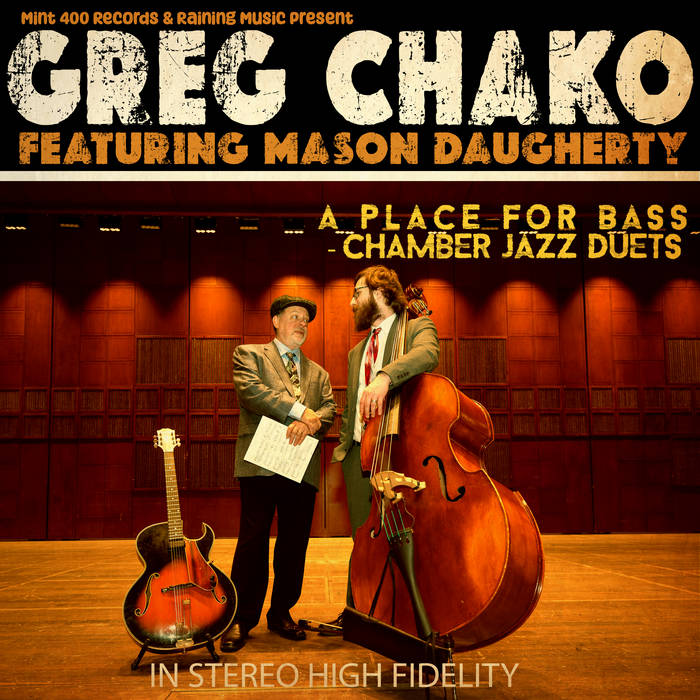
Your new album is A Place for Bass: Chamber Jazz Duets. How would you describe how it fits into your artistic evolution?
I would describe it as, “About time!” (laughing)… I say it that way, because since guitar-bass duos are the most common format for gigs, I don’t know why it took me so long to write music specifically for that format. Most all of my recordings have had some sort of theme, and while living in Japan I did make an album of duets titled Two’s Company, Three’s a Crowd. That album featured only duets: one with guitar-vocals, and the other with guitar-piano. Around 2020, I had a brainstorm that it was about time to actually compose music especially for the guitar-bass duet, and once I began writing the music, my confidence in and enthusiasm for the project grew significantly. I’ve proved to myself that I can write for any format, and this new album of chamber-jazz duets stands alone in its concept. The review quotes, from stellar artists like John Clayton, Rufus Reid, Dave Stryker and Peter Bernstein, have been exceptional! It’s my hope that A Place for Bass will truly elevate my status as a player, composer, and recording artist to a new level.
In your 35 years as a professional musician, what changes have you seen as far as the music industry goes?
I think that the digital revolution and the dissolution of many smaller recording labels (such as the demise of Alfred Lion’s Blue Note label) in favor of far fewer corporate conglomerates are the two biggest movements affecting the music industry.
Additionally, the migration of jazz education away from the live stage and into college classrooms is also a striking difference from 35 years ago. Some of my teachers in grad school who got their teaching jobs based on glowing resumes of professional experience told me that were they to apply for their positions today, they would not be considered “qualified,” because rather than real-life performing experience, it is now expected that professional qualifications include a Doctorate degree from an accredited university.
The use of the internet and computer seems more popular today than in-person interaction. And especially in America, where the youth culture is so revered, the public’s appetite for sound bytes and instant gratification seems to have somewhat transplanted the older, more traditional forms of communication. I’m told that I must now master idioms like Instagram if I wish to remain relevant and that “nobody uses Facebook anymore!” The digital revolution has changed everything, and it’s a challenge for older guys like me to keep up with the speed and scope that technology today embraces.
Have you thought about where you’re going after A Place for Bass in terms of musical style?
Absolutely! When asked what is my favorite record, I always answer honestly and reply, “The next one!” I am constantly thinking ahead. I have finished composing 7 or 8 songs for an album I hope to record this summer and release early next year, that may be titled The Greg Chako Trio: With the Latin Tinge! Jelly Roll Morton said something to the effect of “good jazz should have some Latin tinge,” and all of the songs on this next planned album do have Latin rhythms, such as the Bossa-Nova, Samba, Mozambique, and Baiao. Hopefully, my style is mature and recognizable as my own, irrespective of the format I may be playing in, but I am constantly searching for new ways to express myself with music.

